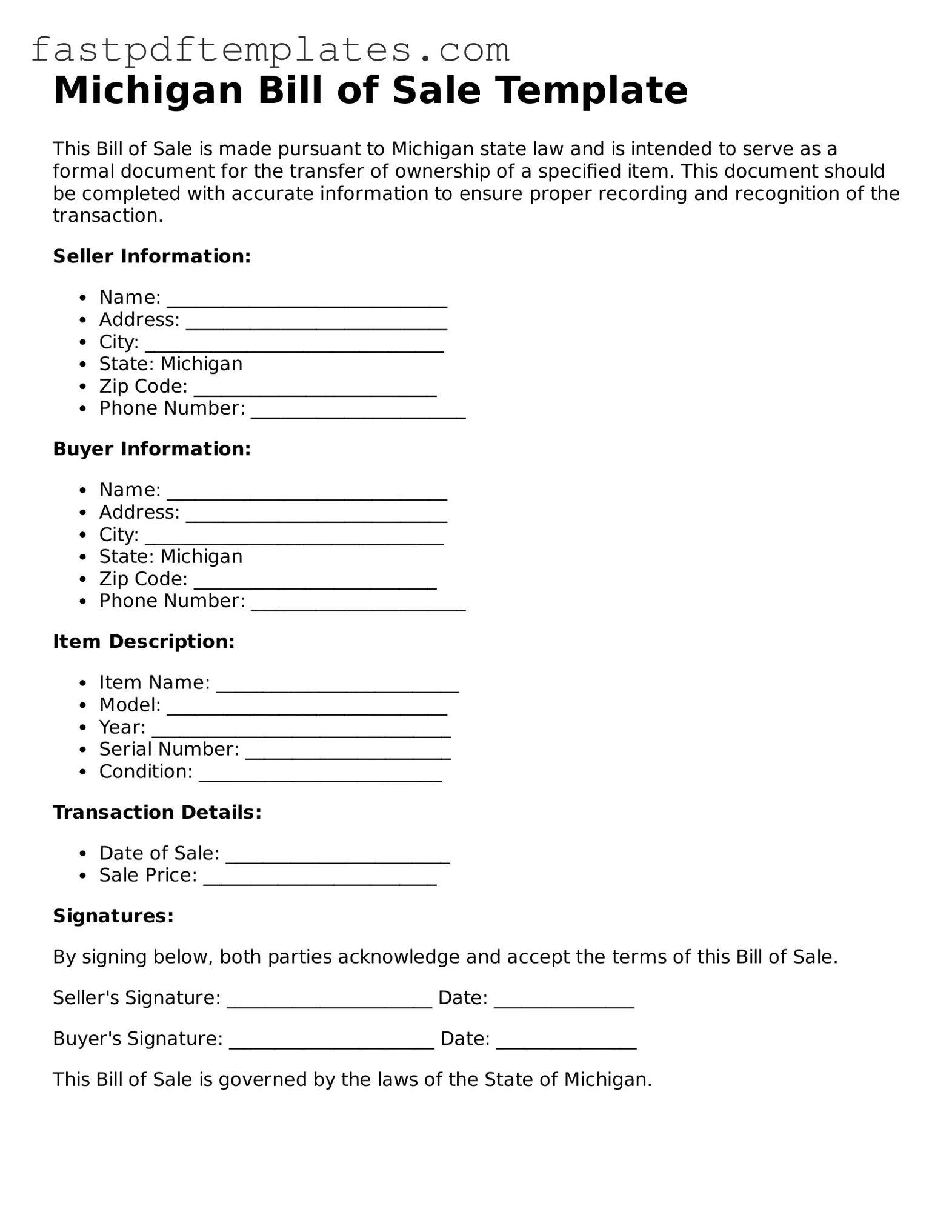The Michigan Bill of Sale form is similar to a Vehicle Title Transfer document. Both documents serve as proof of ownership transfer for a vehicle. The Vehicle Title Transfer is typically completed when a vehicle is sold, ensuring that the new owner has the legal right to operate and register the vehicle. Like the Bill of Sale, it includes details such as the vehicle identification number (VIN), the names of the buyer and seller, and the date of the transaction.
Another document that resembles the Michigan Bill of Sale is the Personal Property Bill of Sale. This document is used for the sale of personal items, such as furniture or electronics. It outlines the specifics of the transaction, including a description of the items sold, the sale price, and the parties involved. Both documents provide a record of the exchange, which can be important for legal and tax purposes.
The Sales Agreement is also comparable to the Michigan Bill of Sale. While a Bill of Sale often serves as a simple proof of transaction, a Sales Agreement is more detailed and may include terms of sale, warranties, and conditions. Both documents are legally binding and protect the interests of both the buyer and seller, ensuring that the terms of the sale are clear and agreed upon.
In addition, the Lease Agreement shares similarities with the Michigan Bill of Sale, particularly when it comes to the transfer of rights. A Lease Agreement outlines the terms under which one party can use property owned by another. While the Bill of Sale transfers ownership, the Lease Agreement allows for temporary use. Both documents require signatures from both parties to validate the agreement.
The Affidavit of Sale is another document that can be likened to the Michigan Bill of Sale. This document is often used when selling a vehicle without a title. The Affidavit serves as a sworn statement confirming the sale and includes essential details like the buyer and seller's names and the vehicle's description. Both documents aim to provide proof of the transaction and protect the rights of the involved parties.
Lastly, the Receipt for Payment can be viewed as similar to the Michigan Bill of Sale. A receipt confirms that payment has been made for goods or services. While the Bill of Sale confirms the transfer of ownership, the receipt serves as proof of payment. Both documents are essential for record-keeping and can be used in disputes to verify the details of a transaction.

